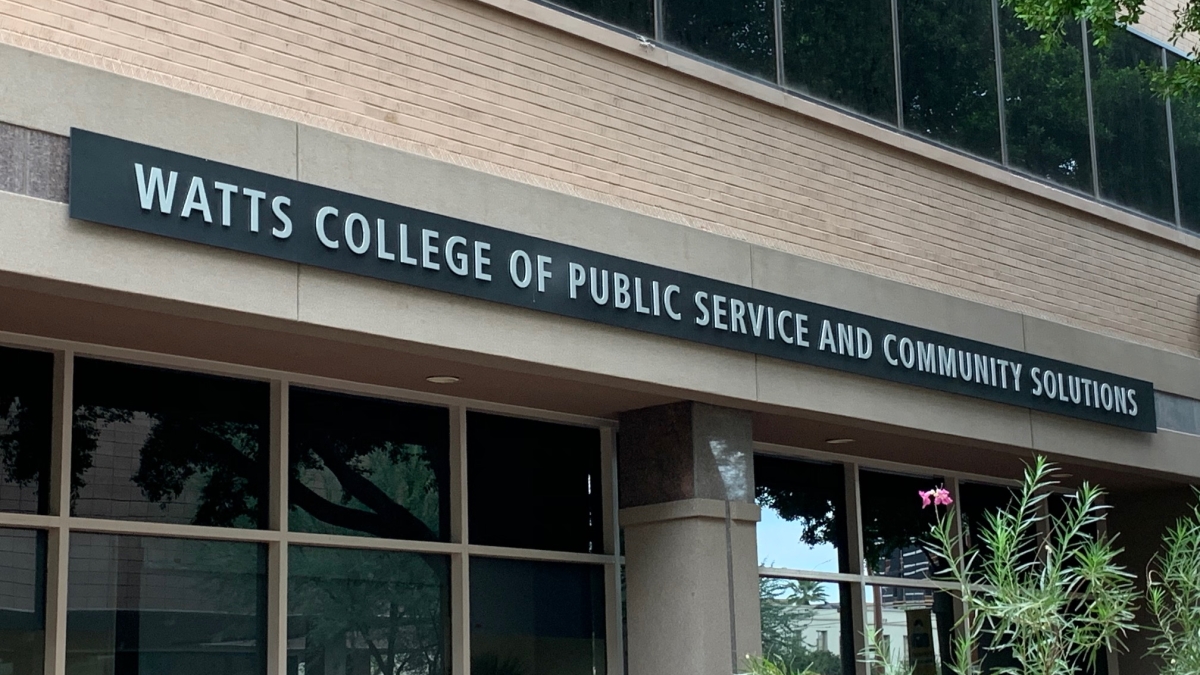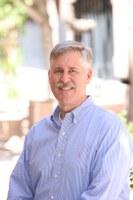Emeritus Professor Scott Decker wants to offer opportunities to today’s criminology and criminal justice students

The Decker Family Scholarship is open to ASU juniors or seniors who intend to become a practitioner in criminal justice, law enforcement, probation and parole, corrections, juvenile justice or other public service roles.
As his academic career progressed both as a teacher and an administrator, Scott Decker learned he liked building things more than managing them.
This realization is a big part of why he and his wife decided to fund a scholarship for Arizona State University criminology and criminal justice students. It also explains why 18 years ago he left the University of Missouri-St. Louis (UMSL) — where he chaired the Department of Criminology and Criminal Justice for many years — for ASU in the first place.
“I learned from my time in St. Louis that I was a builder, not a manager,” Decker said. “It encouraged me to come to ASU to build a top-flight School of Criminology and Criminal Justice program. The program would include high-quality instruction at the undergraduate, master’s and PhD level.”
Today an ASU Foundation Professor emeritus, Decker served as the school’s first director from 2006 to 2014. In 2008, Decker oversaw the creation of ASU’s criminology and criminal justice PhD program, which is celebrating its 15th anniversary this year.
Decker said his experiences as an undergraduate student and later as department chair at UMSL guided him toward creating the Decker Family Scholarship. It is open to juniors or seniors who intend to become a practitioner in criminal justice, law enforcement, probation and parole, corrections, juvenile justice or other public service roles.

ASU Foundation Professor Emeritus Scott Decker. ASU photo
While an undergrad at DePauw University in Indiana, Decker asked his criminology professor one fall semester about conducting interviews inside prisons. His professor said interviews were held on Thursday afternoons, and he invited Decker to interview incarcerated persons with him.
“I listened and observed early on. Then (the professor) said if you want to talk to some of these people on your own, that’s good,” said Decker, who recalled joining the men experiencing incarceration in softball games against the corrections officers. “We won all the time.”
In January, Decker’s professor sent him to observe inside the Indiana Boys School, a correctional institution for adolescent boys.
“I learned more as an observer than I did with interviews and data. That meant a lot for me in terms of understanding the link between the academic part of punishment and the prison and rehabilitation that I observed in the institution,” he said.
Throughout his career, Decker visited 27 different prisons in the United States, Canada, the United Kingdom and Europe.
“It was part of my continuing education and enhanced what I did as a researcher,” he said.
His experiences as a department chair at UMSL provided a foundation for the dramatic changes in the criminology and criminal justice school at ASU. The ASU doctoral program began two years after he arrived, bolstered by the addition of a large cadre of new faculty.
Decker said both he and his wife, JoAnn, are products of public universities (he received his master’s and doctoral degrees from Florida State University, where they met), and they wanted to help students involved in internships and opportunities for service learning. This, as well as a strong ongoing effort in inclusion, remains a priority for the school under its current director, Watts Endowed Professor for Public Safety Beth Huebner.
“We want to provide an opportunity for a junior or senior, with at least a 3.0 grade-point average, to enhance their undergraduate experience,” Decker said. “Funds may be used to support engagement with the community, support for participation in a conference or support for programming a student is engaged in. It is our hope that the scholarship will grow over time and support multiple students.”
In addition to the requirements above, student applicants must submit a short essay on the impact they hope to achieve by pursuing a criminal justice career, and demonstrate financial need as defined by ASU Financial Aid and Scholarship Services. The school will select the first scholarship recipient in spring 2024.
Huebner said she is grateful to the Decker family for their support of the school.
“Scholarships like these make such a difference in the lives of our students, many of whom are the first in their family to go to college,” Huebner said. “The health and safety of the community is bolstered for all when we send educated ASU students into the public safety workforce, and this scholarship will help make that a reality for the recipient.”
Decker said he and his wife deeply appreciate all that Arizona and ASU have done for them.
“We want to give something back to a state and a university that has given a lot to us and whose mission we support,” Decker said.
The School of Criminology and Criminal Justice is part of the Watts College of Public Service and Community Solutions. Information on supporting the scholarship is available here.
More Arts, humanities and education

Local traffic boxes get a colorful makeover
A team of Arizona State University students recently helped transform bland, beige traffic boxes in Chandler into colorful works…

2 ASU professors, alumnus named 2025 Guggenheim Fellows
Two Arizona State University professors and a university alumnus have been named 2025 Guggenheim Fellows.Regents Professor Sir…

No argument: ASU-led project improves high school students' writing skills
Students in the freshman English class at Phoenix Trevor G. Browne High School often pop the question to teacher Rocio Rivas.No,…

